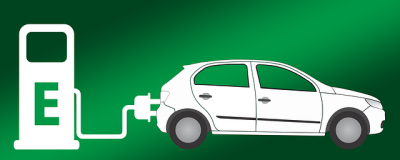Impressive! Almost 100% of the cars sold in Norway during the past month of January were electric. Specifically, an overwhelming 96%. Of the 9,343 vehicles registered, 8,954 were completely electric, leaving gasoline and diesel practically forgotten.
This figure is not just another statistic, but a milestone that resonates strongly on the path towards sustainable mobility and places us in front of an undeniable reality: the future of the automobile is electric. Norway, once again, positions itself as a pioneer, showing the world that the energy transition is not a utopia, but a tangible possibility, within reach of any nation with the appropriate political will and planning.
This achievement is not the result of chance, but of a long-term strategy, woven with intelligence and perseverance. Norway has understood that to drive a change of this magnitude, it is not enough to wish for it; it must be created. And it has done so through a consistent policy of incentives for the purchase of electric vehicles, combined with a strategic investment in charging infrastructure. Subsidies, tax exemptions, preferential access to bus lanes and parking spaces: a set of measures that have made the electric car an option that is not only ecological, but also economically attractive.
At the same time, the country has built an extensive network of charging points, both in urban areas and on roads, eliminating one of the main barriers to the adoption of electric vehicles: "range anxiety." Charging the car is now as simple as refueling, thanks to intelligent planning that has prioritized accessibility and user comfort.

The Norwegian experience offers us an invaluable lesson: when you have clear ideas and act with determination, the results come. Norway, a country rich in oil resources, has consciously decided not to exploit them indiscriminately. They have understood that progress is not measured in barrels of oil extracted, but in the quality of life of their citizens and the health of the planet.
An example of responsibility and vision of the future that contrasts with the short-sightedness of other nations clinging to an obsolete and polluting energy model. Norway shows us that the wealth of a country does not reside solely in its natural resources, but also, and above all, in its ability to manage them intelligently and responsibly, betting on sustainable alternatives. Today there are viable alternatives to oil; all that is needed is intelligence, common sense and political will to implement them.
Although Norway is not part of the European Union, its example resonates strongly on the continent and shows us the way forward. The transition to electric mobility is imperative, not only to combat climate change, but also to improve the quality of air in our cities and reduce our dependence on fossil fuels. Norway shows us that this transition is possible without sacrificing our quality of life, even improving crucial aspects such as public health and environmental sustainability.
The question we must ask ourselves is: when will we follow their example? The technology is available, the solutions exist, and the benefits are obvious. What is lacking is the political will to drive real change and leave behind a transport model that is obsolete and harmful to the planet.
The case of Norway is a call to action, an inspiration for all those who believe in a cleaner and more sustainable future. A future where electric mobility is the norm, not the exception. A future that, thanks to examples such as Norway, is getting closer.
